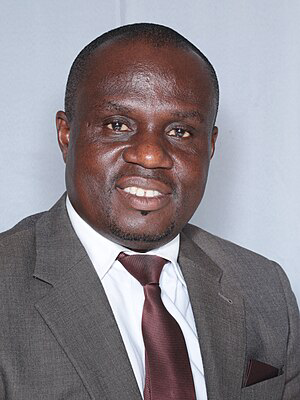The Chairman Economy and Development committee of Ghana’ Parliament, Eric Afful has applauded the launch of a new initiative aimed at equipping lawmakers in the exercise of their oversight responsibilities of the economic and financial governance systems.
According to him, the project will go a long way in enhancing parliamentary watchdog ability in holding the Executive accountable.
The project, titled “Building the Capacity of Parliamentarians for Economic and Financial Governance”, was launched last Wednesday through a collaboration between the Parliament of Ghana, the UK’s Foreign, Commonwealth & Development Office (FCDO), and the World Bank.
Funded by an £800,000 (approximately US$1.6 million) grant from the FCDO through the World Bank, the 18-month programme seeks to build the capacity of Ghanaian Members of Parliament (MPs) in areas such as economic management, fiscal oversight, and public financial accountability.
Speaking in an exclusive interview, Hon. Afful described the initiative as “a milestone for Ghana’s democracy,” noting that for far too long, Parliament has lacked the financial autonomy and institutional capacity to effectively monitor the Executive, particularly the Ministries, Departments, and Agencies (MDAs).
“Historically, Parliament has not had the necessary independence to fulfill its constitutional oversight role. MPs often depend on the Executive to fund their oversight activities. This undermines the checks and balances that are fundamental to good governance,” he said.
Hon. Afful, who is also the Member of Parliament for Amenfi West, stressed that this structural weakness has allowed many MDAs to function with minimal accountability.
“Without adequate resources, MPs can’t organize hearings, conduct investigations, or follow up on how budget allocations are spent. Some Ministries and Agencies take advantage of this vacuum and operate unchecked,” he added.
The newly launched project is designed to address these institutional gaps. According to Hon. Afful, the funds will be used to equip MPs with practical tools, technical knowledge, and research support to effectively scrutinize public spending — especially at the Metropolitan, Municipal, and District Assembly (MMDA) level.
“This project is about more than just training; it’s about empowering Parliament to become a stronger, more effective institution. With this support, we can enforce greater transparency, demand accountability, and promote better economic governance,” he emphasized.
Key Parliamentary Bodies to Benefit
The initiative will directly support the following committees and offices: Finance Committee, Budget Committee, Economy and Development Committee, Government Assurances Committee, Public Accounts Committee, the newly created Office for Parliamentary Analysis, and the Citizens’ Bureau.
Strategic Objectives of the Project
The project is structured around six core objectives:
Technical Advisory Support: Provide expert guidance on macroeconomics, tax policy, public financial management, and development policy to enhance the decision-making capacity of MPs.
Prudent Resource Use: Support Parliament-led initiatives that promote efficient and responsible use of public resources.
Training and Tools: Develop handbooks, toolkits, and training materials for use in the induction and upskilling of parliamentary committees.
Peer Learning: Facilitate exchanges and peer learning opportunities between Ghanaian MPs and counterparts in other legislatures.
Evidence and Research: Strengthen Parliament’s ability to identify knowledge gaps and collaborate with think tanks, civil society organizations (CSOs), and the private sector for evidence-based policymaking.
Transparency and Public Engagement: Enhance Parliament’s openness and improve public access to financial governance information through partnerships with media and civil society.



